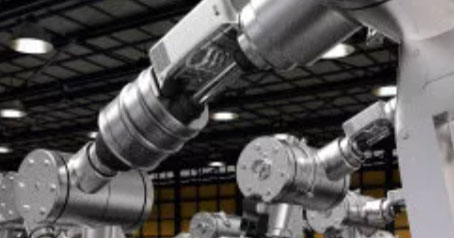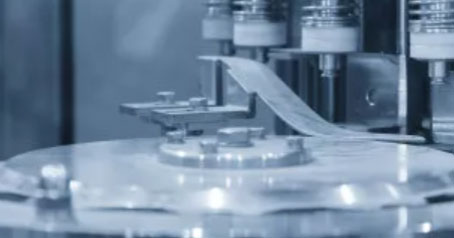JCB hydraulic pump refers to the hydraulic pump used by JCB machinery. JCB is a well-known construction machinery brand in United Kingdom, and the equipment it produces is widely used in construction, agriculture, industry and other fields. As the core power component of the hydraulic system, the hydraulic pump plays a vital role in JCB equipment, converting mechanical energy into hydraulic energy to provide power for various actions of the equipment.
There are various types of JCB hydraulic pumps, the common ones include gear pumps, piston pumps, etc. These different types of hydraulic pumps have different characteristics and application scenarios. For example, gear pumps have a relatively simple structure and low cost, which is suitable for occasions where the pressure and flow requirements are not particularly high; Piston pumps, on the other hand, provide higher pressures and more precise flow control, and are often used in equipment that requires high power performance.
In the market, original JCB hydraulic pump accessories can be purchased, and there are also some JCB hydraulic pump products produced by authorized or third parties that meet the relevant standards are available. If the hydraulic pump of the JCB equipment is faulty or damaged, it needs to be repaired or replaced in a timely manner to ensure the proper operation of the equipment.
Here's how to determine the cause of JCB hydraulic pump failure:
First. Observe the appearance
1. Check the surface of the hydraulic pump for obvious damage, cracks or oil leakage. If there is an oil leak, it is possible that the seal is damaged or improperly installed.
2. Check the connecting lines and joints for looseness and leakage, which may lead to insufficient pressure in the hydraulic system.
Second. Listen to the sound
1. The sound of the hydraulic pump in normal operation is relatively stable and uniform. If you hear unusual noises, such as crashing sounds, friction sounds, etc., it may be that the internal parts are worn, damaged, or foreign objects have entered.
2. Excessive noise may also be caused by the vibration caused by the unstable installation of the hydraulic pump.
Third. Check the pressure
1. Use a hydraulic pressure gauge to measure the working pressure of the hydraulic system. If the pressure is lower than the normal range, it may be that the output flow of the hydraulic pump is insufficient, and the reason may be that the pump is worn internally, the seal fails, the distribution plate is damaged, etc.
2. Large pressure fluctuations may be a problem with the variable mechanism of the hydraulic pump, or air entering the system.
Fourth, observe the flow
1. Check the action speed of hydraulic actuators (such as hydraulic cylinders, hydraulic motors). If the action is slow, it may be that the flow of the hydraulic pump is insufficient.
2. The actual output flow of the hydraulic pump can be measured by the flow meter, and compared with the rated flow rate to determine whether there is a fault.
Fifth. Check the temperature
1. Measure the housing temperature of the hydraulic pump with a thermometer. If the temperature is too high, it may be that there is too much friction inside the hydraulic pump, the viscosity of the oil is not suitable, or the heat dissipation is poor.
2. Overheating may lead to problems such as accelerated aging of hydraulic pump seals and deformation of parts.
Sixth. Check the oil
1. Observe the color and cleanliness of the hydraulic fluid. If the oil is blackened, cloudy, or has impurities, it may be that metal particles from the wear inside the hydraulic pump have been mixed into the oil.
2. Regularly test the viscosity, acid number and other indicators of hydraulic oil, and the oil that does not meet the requirements will affect the performance and life of the hydraulic pump.
JCB hydraulic pumps
JCB hydraulic pump for sale
 French
French
 Portuguese
Portuguese
 Russian
Russian
 German
German
 Spanish
Spanish
 Japanese
Japanese
 Korean
Korean
 Irish
Irish
 Greek
Greek
 Turkish
Turkish
 Italian
Italian
 Danish
Danish
 Romanian
Romanian
 Indonesian
Indonesian
 Czech
Czech
 Afrikaans
Afrikaans
 Swedish
Swedish
 Polish
Polish
 Basque
Basque
 Catalan
Catalan
 Esperanto
Esperanto
 Hindi
Hindi
 Lao
Lao
 Albanian
Albanian
 Amharic
Amharic
 Armenian
Armenian
 Azerbaijani
Azerbaijani
 Belarusian
Belarusian
 Bengali
Bengali
 Bosnian
Bosnian
 Bulgarian
Bulgarian
 Cebuano
Cebuano
 Chichewa
Chichewa
 Corsican
Corsican
 Croatian
Croatian
 Dutch
Dutch
 Estonian
Estonian
 Filipino
Filipino
 Finnish
Finnish
 Frisian
Frisian
 Galician
Galician
 Georgian
Georgian
 Gujarati
Gujarati
 Haitian
Haitian
 Hausa
Hausa
 Hawaiian
Hawaiian
 Hebrew
Hebrew
 Hmong
Hmong
 Hungarian
Hungarian
 Icelandic
Icelandic
 Igbo
Igbo
 Javanese
Javanese
 Kannada
Kannada
 Kazakh
Kazakh
 Khmer
Khmer
 Kurdish
Kurdish
 Kyrgyz
Kyrgyz
 Latin
Latin
 Latvian
Latvian
 Lithuanian
Lithuanian
 Luxembourg
Luxembourg
 Macedoniar
Macedoniar
 Malagasy
Malagasy
 Malay
Malay
 Malayalam
Malayalam
 Maltese
Maltese
 Maori
Maori
 Marathi
Marathi
 Mongolian
Mongolian
 Burmese
Burmese
 Nepali
Nepali
 Norwegian
Norwegian
 Pashto
Pashto
 Persian
Persian
 Punjabi
Punjabi
 Serbian
Serbian
 Sesotho
Sesotho
 Sinhala
Sinhala
 Slovak
Slovak
 Slovenian
Slovenian
 Somali
Somali
 Samoan
Samoan
 Scots Gaelic
Scots Gaelic
 Shona
Shona
 Sindhi
Sindhi
 Sundanese
Sundanese
 Swahili
Swahili
 Tajik
Tajik
 Tamil
Tamil
 Telugu
Telugu
 Thai
Thai
 Ukrainian
Ukrainian
 Urdu
Urdu
 Uzbek
Uzbek
 Vietnamese
Vietnamese
 Welsh
Welsh
 Xhosa
Xhosa
 Yiddish
Yiddish
 Yoruba
Yoruba
 Zulu
Zulu







